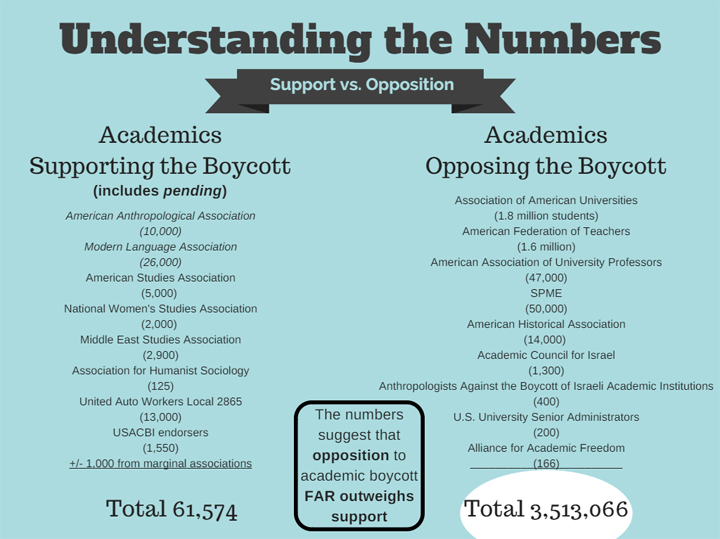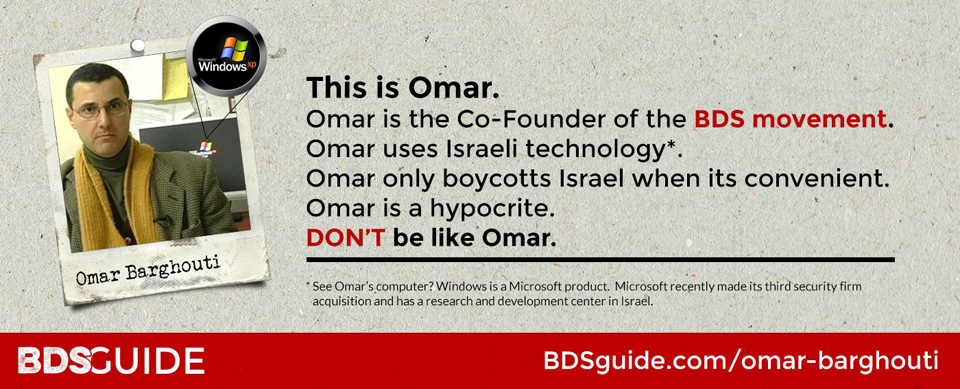Bigotry, Discrimination, anti-Semitism:
10 Things You Need to Know About BDS
1) BDS is not new. Boycotting Jewish businesses started in 1922
-
1922 - Boycotts of Jewish products began in 1922 when Arabs began boycotting Jewish interests in British Mandate Palestine.
-
1933 – 1936 The boycott was reinforced in 1933 and 1934 by the Arab Executive Committee of the Syrian-Palestinian Congress, and again in 1936 by the Arab Labor Federation. Palestinian Arabs who broke the boycott were attacked.
The boycotts reached Europe in 1933 when Nazi Germany targeted Jewish business and professionals. This of course was the first anti-Jewish act in a series of events inevitably leading the murder of 6 million Jews.
Not coincidentally, Nazi Germany and Haj Al Amin, the Grand Mufti of Jerusalem, both initiated their respective boycotts of Jewish business on the very same day in 1933
-
1945 – 1948 The boycott of Jewish products continued after the war was over when in 1945, the Arab League officially organized a boycott of the Yishuv, the Jewish community in pre-Israel British Mandate Palestine. The declaration, contained in Arab League Resolution 16, stated: “Products of Palestinian Jews are to be considered undesirable in Arab countries. They should be prohibited and refused as long as their production in Palestine might lead to the realization of Zionist political aims.” This boycott would become the first official boycott of Israel when the Jewish State declared independence in 1948.
-
1977 – US Congress makes it illegal to adhere to Arab League boycott
-
2001 – Conference on Racism in Durban sees renewed call by Arab League to resume the boycott of Israel. This becomes the framework for the BDS movement, circumventing the laws prohibiting such activities by refraining from referring to the Arab League boycott by name.
- 2005 – A coalition of Palestinian organizations calls for “people of conscience” to engage in complete academic and cultural boycott of Israel. The declaration’s first signatory was Yasser Arafat’s Council of National and Islamic Forces in Palestine, which includes a number of organizations featured on the US Department of State’s list of Designated Foreign Terrorist Organizations. The Palestinian call for boycott was followed by the formation of the United States Academic and Cultural Boycott of Israel.
2) The BDS movement lobbies governments, businesses, and individuas to boycott, divest from, and sanction Israel
Boycotts, divestment, and sanctions (BDS): are the tactics of political warfare used against Israel, based on the exploitation of human rights, double standards, comparisons to apartheid South Africa, and false accusations of “war crimes.”
Boycotts: of products, culture, and academics –
BDS activists lobby stores not to carry Israeli products and encourage others not to purchase them. They send letters to artists, musicians, authors, and academics, imploring them not to perform and appear in Israel or cooperate with Israeli institutions. Boycotts undermine liberal values, such as academic freedom and freedom of expression, by restricting openness and tolerance.
Divestment: from companies that do business with Israel –
Distorting the concept of ethical investing, nongovernmental organizations (NGOs) accuse companies that conduct business in Israel of involvement in war crimes and violations of international law. The NGOs approach investors, primarily large banks and pension funds, and push for the exclusion of these companies.
Sanctions: against self-defense measures –
Anti-Israel activists demand that the international community enact comprehensive sanctions against Israel – treating Israel as a pariah state.
3) Since 2003 BDS has been gaining a foothold on American college campuses
What started on 1 campus in 2003 has suddenly reached 28 campuses and university systems in 2015. And while most of the resolutions were defeated, the increase in proposed resolutions and debates on the subject is a worrysome trend.
BDS resolutions call upon their respective universities to divest from Israeli companies and to boycott Israeli institutions. They are very divisive among students and often lead to Jewish and Israeli students feeling isolated, discriminated against, and attacked.
Up until the 2011-2012 school year, divestment resolutions were voted on at a maximum of 5 campuses. In 2012-2013, BDS reached 10 campuses. In 2013-2014 that number increased to 19, and in 2014-2015 resolutions were proposed on 27 campuses and at the California Community College Student Senate.
The success rate of proposed resolutions may be low, but as more resolutions arise, more resolutions pass.
4) Academic Associations are being targeted by BDS
Academic Associations exist to promote an academic discipline or profession. An increasing number of Academic Associations have been voting on boycott resolutions.
So far 14 associations have had BDS activity. 10 of them have passed resolutions, 1 has been vetoed, 2 have been rejected, 1 is pending, and 1 is postponed.
- American Anthropological Association (AAA) – pending
- American Historical Association (AHA) - defeated
- American Studies Association (ASA) - passed
- Middle East Studies Association (MESA) – rejected association boycott, endorsed personal boycotts
- Modern Language Association (MLA) - postponed
- Asian American Studies (AAAS) - passed
- Native American and Indigenous Studies (NAISA) - passed
- Chicana and Chicano Studies (NACCS) - passed
- National Women's Studies Association (NWSA) - passed
- Association of Humanist Sociology (AHS) - passed
- African Literature Association - passed
- Critical Ethnic Studies - passed
- Peace and Justice Studies - passed
- United Auto Workers Local 2865 – passed and vetoed
5) BDS operates under the banner of promoting human rights but in reality seeks the elimination of Israel as a Jewish state:
• Co-founder of Palestinian Campaign for the Academic and Cultural Boycott of Israel (PACBI) Omar Barghouti (2004): “The current phase has all the emblematic properties of what may be considered the final chapter of the Zionist project. We are witnessing the rapid demise of Zionism, and nothing can be done to save it, for Zionism is intent on killing itself. I, for one, support euthanasia.”
• As'ad Abu Khalil, a central activist in the U.S. (2012): “Justice and freedom for the Palestinians are incompatible with the existence of the State of Israel.”
• Pro-BDS author Ahmed Moor: “OK, fine. So BDS does mean the end of the Jewish state.... I view the BDS movement as a long-term project with radically transformative potential....In other words, BDS is not another step on the way to the final showdown; BDS is The Final Showdown.”
6) BDS’ success lies in their ability to make a lot of noise.
The number of academics and cultural figures opposed to boycotts is much higher than the number of those supporting boycott, but BDS is very good at making the public think the opposite is true.

7) BDS tactics include false accusations of war crimes and drawing comparisons between Israel and apartheid South Africa.
The apartheid South Africa analogy implies systematic racism which allegedly prevents non-Jewish Israeli citizens from occupying the same professions or using the same public transportation as Jewish Israeli citizens. This of course is an absurdly inaccurate claim and is very offensive to South African communities who suffered through actual apartheid. The following list illustrates that Israel is not in any way exercising apartheid
a) All Israeli citizens have full equal rights
b) Arab citizens occupy every profession including police chiefs, army commanders, parliament members and judges
c) Israeli universities are home to Arab and Palestinian students and teachers
d) Incitement to racism is a criminal offence in Israel
e) Arabs and Israelis receive the same treatment in Israeli hospitals
f) There is no separate transportation or other amenities for Jews and non-Jews, Israelis or Palestinians
g) Jewish and non-Jewish citizens of Israel are tried in court based on fact, not ethnicity or religion
Actual examples of non-Jewish Israelis debunking the apartheid myth:

For more of Elder of Ziyon's "apartheid?" posters, visit http://bit.ly/EOZ-aw
8) BDS founders and supporters frequently contradict themselves, to the point of blatant hypocrisy.
They demand that all “people of conscience” boycott all Israeli products and institutions, while they themselves enjoy the benefits of Israeli goods. BDS co-founder Omar Barghouti studied at Tel Aviv University. Students for Justice in Palestine, the student group responsible for the majority of BDS activity on campus, uses WIX to build their websites (http://cornellsjp.wix.com/home, http://denversjp.wix.com/dusjp). And the rest undoubtedly use Intel, Microsoft, Apple, and many other products developed in Israel.

9) New legislation and policy in the United States, Canada, the UK, and France deems BDS discriminatory
These new laws prohibit public institutions from partaking in BDS activities and doing business with companies that boycott Israel.

10) Anti-BDS legislation is gaining support among the states
Since 2015, a number of states have begun passing anti-BDS legislation, condemning the boycott movement as discriminatory, and prohibiting the state from doing business with companies that engage in boycott of Israel or Israeli companies and institutions.
Thus far, Illinois, South Carolina, Arizona, Indiana, Florida and Georgia have passed their bills.
An additional 20 states are considering similar legislation.



